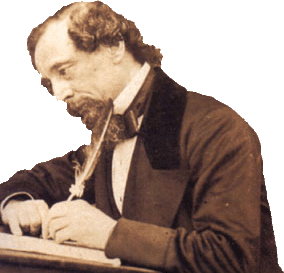Wow - what a busy last couple of weeks this has been. Because of the hectic crunch of a new semester, I've had to put much of my work on the Dickens project on hold. I'm still hella busy, but I'm going to try to get more up soon. I've added four articles since I last posted here. Let's discuss, shall we?
The big news is that Henry Morely's "Ground in the Mill" is up. To me, this is the "money shot" of this project. One of the most glaring absences in Hard Times is the lack of in-depth commentary on the plight of mill workers. Face it, life really sucked for people like Stephen and Rachel. The Gradgrind children, and even Sissy Jupe in her circus days didn't have it as bad as the kids and adults who had to live and work in a mill. At least the Gradgrinds had all their limbs. "Ground in the Mill" focuses attention on the neglectful oversight of safety in favor of profit, and of work over education. Dickens brilliantly includes "Ground in the Mill" in the issue of Household Words that includes chapters of Hard Times that do not deal with the characters who must live in the grizzly reality of mill-life. Instead, this article comes after two chapters on Bounderby and the Gradgrinds. This is significant because here is an example of Dickens the author telling one story, and Dickens the editor telling another part of the same story, helping to keep the relevant themes of the entire novel on the minds of readers, regardless of where the novel took them in that issue. Pretty clever, huh?
The article "Missing, a Married Gentleman" mentions that one of the short stories from Nathaniel Hawthorne's Twice-Told Tales was actually a retelling of a story Hawthorne read in a newspaper, and that article was a retelling of a story originally published in a book by Dr. William King (1685-1763) called Political and Literary Anecdotes of His Own Time. I haven't read Twice-Told Tales, so I don't know which story is being referred to here. However, I was always under the impression that Twice-Told Tales was so named because Hawthorne published them all first in magazines and journals, hence them being consolidated into a single source and republished made them "twice-told." In reality, if this article is to be believed, "twice-told" means "plagiarized." Interesting. Obviously I can't prove that Hawthorne plagiarized anything because 1, I can't find the original Political and Literary... online and can therefore not verify that it actually contained a story about a missing husband, and 2, I am too lazy to research if Twice-Told Tales was supposed to have been an original work by Hawthorne, or if he was retelling folk tales and other anecdotes he picked up along the way. At any rate, maybe this page will be number one on Google if anyone ever searches for "Nathaniel Hawthorne plagiarized." That would be cool.
In "A Marvellous Journey with the Old Geographer," Dickens gives us a tour of the world as if 16th century historian, Peter Heylyn, is our guide. Dickens doesn't care much for Heylyn or his views of other cultures, and all but comes out and says that Heylyn is an ignorant racist. Dickens takes particular pleasure in pointing out all the times Heylyn predicts something will happen in the future, and Dickens, standing nearly almost 250 years hence, has the advantage of seeing that Heylyn's predictions did not materialize and therefore Heylyn is, again, and ignorant racist. It's quite funny, really, especially when you consider that we are standing nearly 250 years hence of Dickens, and I am sure if we look hard enough that there are a few instances in Dickens's publication career where we might find evidence that Dickens was an ignorant racist, too. Just as those who stand 250 years hence of us will see us as ignorant racists. It's par for the course, really. If you live in the distant past, you are an ignorant racist. Ah, who doesn't love sweeping generalizations?
